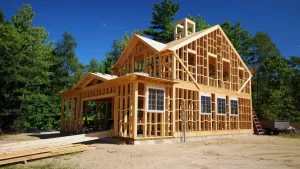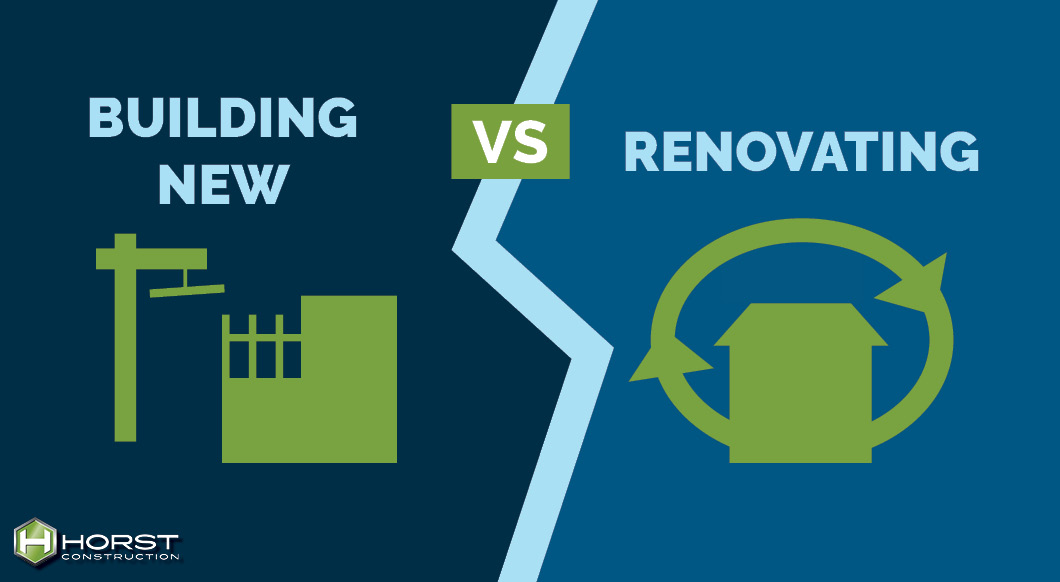Is Renovating a House Cheaper Than Building a New One?
In the realm of homeownership, one question that often arises is whether it is more cost-effective to renovate an existing house or build a brand new one from scratch. Both options have their merits, but understanding the factors involved can help you make an informed decision. In this article, we will delve into the details and conduct a comparative analysis of renovating versus building a new house.
The Cost Considerations
Renovating a house typically involves making upgrades to an existing structure, which can include remodeling rooms, adding new features, or improving functionality. Building a new house, on the other hand, entails constructing an entirely new structure from the ground up. Let’s explore the cost considerations associated with each option:
Renovating a House
When renovating a house, the existing structure provides a foundation to build upon. This can potentially save on costs compared to starting from scratch. However, it is essential to consider the following factors:
- Scope of Renovation: The extent of the renovation project will have a significant impact on costs. Minor cosmetic updates, such as painting and replacing fixtures, will generally be less expensive than extensive structural changes.
- Materials and Labor Costs: Depending on the materials chosen and the complexity of the renovation, costs can vary. Skilled labor and specialized contractors may be required for specific projects, potentially increasing expenses.
- Hidden Issues: Renovating an older house may uncover unexpected problems, such as hidden structural damage or outdated electrical systems. These unforeseen issues can add to the overall renovation costs.
- Energy Efficiency: Upgrading a house to be more energy-efficient can lead to long-term cost savings on utilities. While these improvements may add initial expenses, they can pay off in the future.
Building a New House
Constructing a new house provides the advantage of starting with a clean slate, allowing for greater customization and potentially more energy-efficient design. However, building a new house comes with its own set of cost considerations:
- Land Acquisition: Purchasing land is a significant upfront cost when building a new house. The location, size, and availability of suitable land can greatly impact the overall budget.
- Design and Architecture: Customizing the design of a new house can lead to increased expenses. Engaging architects, obtaining permits, and adhering to building codes all contribute to the overall cost.
- Construction Materials and Labor: The choice of materials and the complexity of the design will influence construction costs. Skilled labor is required to build a new house, and their expertise adds to the expenses.
- Infrastructure: When building a new house, you need to consider the installation of utilities such as electricity, plumbing, and HVAC systems. These infrastructure costs can significantly impact the budget.
Comparing the Costs
Both renovating and building a new house come with their own set of expenses. The total cost will depend on various factors such as location, size, design complexity, and the specific details of the project. While it is challenging to provide a definitive answer as to whether renovating or building a new house is cheaper, we can analyze some general trends:

Renovating a House: Pros and Cons
Renovating a house can offer several advantages. It allows you to preserve the character and charm of an existing structure while making desired improvements. Additionally, renovating is often a faster process compared to building a new house since the foundation is already in place. However, there are potential drawbacks to consider:
- Unforeseen Expenses: As mentioned earlier, hidden issues or unexpected complications can arise during a renovation project, leading to additional costs. Proper planning and thorough inspections can help mitigate these risks.
- Limitations: Renovating an existing house may come with limitations on the extent of changes you can make. Structural constraints or zoning regulations may impact your renovation plans.
- Resale Value: While renovations can enhance the value of a house, it is crucial to consider whether the investment will provide a substantial return on investment when compared to the cost of building a new house.
Building a New House: Pros and Cons
Constructing a new house offers the advantage of complete customization to meet your specific needs and preferences. You have control over the design, layout, and energy efficiency features. However, there are some considerations to keep in mind:
- Upfront Costs: Building a new house requires a significant initial investment, including land acquisition, design, permits, and construction costs. It may take longer to recoup these expenses compared to renovating.
- Construction Time: Building a new house typically takes longer than a renovation project. Delays in construction can extend the timeline and potentially increase costs.
- Environmental Impact: Constructing a new house consumes additional resources and contributes to the environmental footprint. Consider sustainable building practices and materials to mitigate the impact.
Considering Your Unique Circumstances
When deciding between renovating a house and building a new one, it’s important to assess your unique circumstances. Consider the following factors:
- Budget: Evaluate your budget and determine how much you can afford to spend on your housing project, taking into account both upfront costs and long-term financial implications.
- Existing Structure: Assess the condition of the existing house. If it has significant structural issues or lacks essential features, building a new house may be a more practical option.
- Location and Land: Consider the availability and cost of suitable land in your desired location. This can significantly impact the feasibility and cost-effectiveness of building a new house.
- Personal Preferences: Think about your lifestyle, design preferences, and the level of customization you desire. Renovating an existing house may allow you to retain unique architectural elements, while building new offers complete creative freedom.
Conclusion
The decision to renovate a house or build a new one depends on various factors, including budget, scope of work, location, and personal preferences. While renovating a house can be a cost-effective option, building a new house provides the advantage of customization and energy-efficient design. It is crucial to carefully evaluate your needs, conduct thorough research, and consult with professionals to make an informed decision that aligns with your goals and resources. Ultimately, the choice between renovating and building a new house should be based on your specific circumstances and priorities. https://nazbuild.com.au/renovation-sunshine-coast


